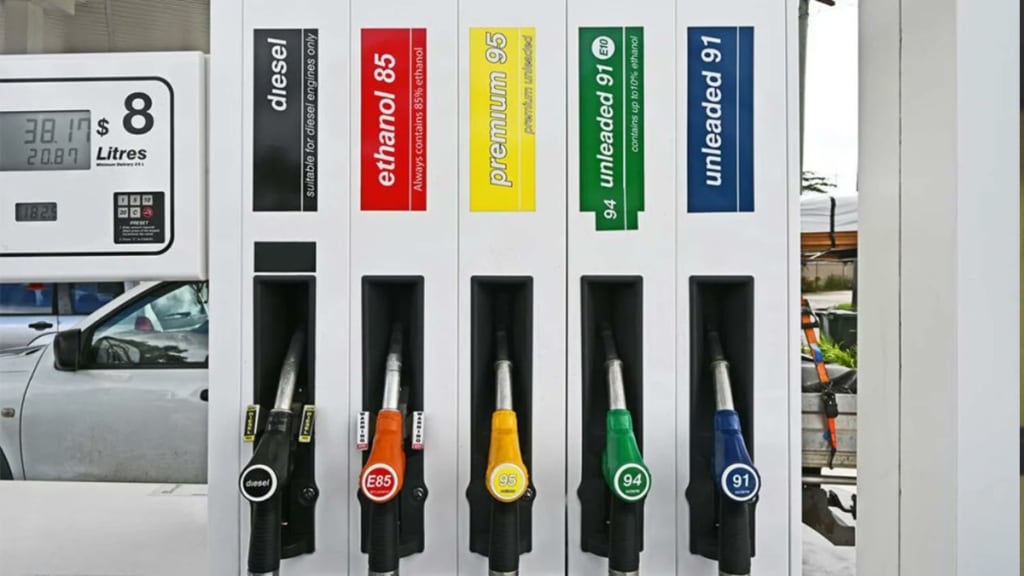The government has rolled out ethanol-blended petrol (E20) to cut dependence on oil imports, move closer to its Net Zero 2070 goal, and strengthen the economy by supporting farmers, who it says are now becoming “Urjadaatas” (energy providers) instead of just “Annadatas” (food providers).
According to official data, ethanol blending in petrol has already saved Rs 1.44 lakh crore in foreign exchange, substituted around 245 lakh metric tonnes of crude oil, and reduced CO2 emissions by nearly 736 lakh metric tonnes. This is reportedly equivalent to planting 30 crore trees. At 20% Ethanol blending, the government estimates that farmers will receive payments worth Rs 40,000 crore this year, while forex savings will touch Rs 43,000 crore.
However, vehicle owners have flagged concerns, especially those with older models, who argue that E20 fuel causes a “drastic” dip in mileage and fuel efficiency. The Centre has dismissed these claims as “misplaced,” saying that E20 not only improves acceleration and ride quality but also cuts carbon emissions by 30% compared to E10 fuel.
“The use of E-20 gives better acceleration, better ride quality and most importantly, lowered carbon emissions by approximately 30% as compared to E10 fuel. Ethanol’s higher-octane number (~108.5 compared to petrol’s 84.4) makes Ethanol-blended fuels a valuable alternative for higher-octane requirements that are crucial for modern high-compression engines. Vehicles tuned for E20 deliver better acceleration, which is a very important factor in city driving conditions. Additionally, Ethanol’s higher heat of vaporisation reduces intake manifold temperatures, increasing air-fuel mixture density and boosting volumetric efficiency,” the government explained on X (formerly Twitter).
It added, “The critiques suggesting that E20 causes a ‘drastic’ reduction in fuel efficiency are misplaced. Vehicle mileage is influenced by a variety of factors beyond just fuel type. These include driving habits, maintenance practices such as oil changes and air filter cleanliness, tyre pressure and alignment, and even air conditioning load.”
The government further said that if it takes a step back, it would mean losing “hard-fought gains on pollution”.
⛽️#Biofuels and Natural Gas are India’s bridge fuels. They represent a viable, non-disruptive transition towards meeting our commitments to a greener world and are in line with our Nationally Determined Contribution (NDC) wherein India has signed up to Net Zero by 2070. A study…
— Ministry of Petroleum and Natural Gas #MoPNG (@PetroleumMin) August 12, 2025
‘Setting a dangerous precedent’: Social media
“I’m 100 per cent sure that forcing ethanol on non-compatible vehicles is nothing but a psyop. It’s a blatant test to see just how much they can get away with before people finally push back. This isn’t just about damaging engines. It’s about setting a dangerous precedent for the future,” said Anuradha Tiwari on X (formerly Twitter).
Kamlesh Singh, who is an “occasional columnist”, said, “People aren’t outraged about ethanol blending. They are outraged about their cars not being ready for the level of blending made mandatory….” He added that the 2023 deadline cannot be met as most cars on sale in 2025, too, aren’t “ethanol” ready.
One social media user slammed influencers who are apparently siding with the government policy on ethanol, saying that they would be the next ones who would be paying “Rs 50,000 in repairs”.
“Influencers selling themselves for Rs 1,500 to tweet E20 petrol is good like sitting on a tree and sawing off the same branch you’re on. Tomorrow you’ll be the one rushing to the garage and paying Rs 5,000 for repairs,” he said.
Yet another social media user said that the government “hired” influencers to post videos on ethanol-blended fuel. “Seeing videos all over X. Not fair,” he added.
‘Govt blending petrol with lies’
Yet another Internet user claimed, “An automotive influencer shared the ‘apparent’ message for inquiry to create positive content on ethanol blending. This government is such a PR balloon.”
The “concept” of the purported message read: “Need to create content to response to concerns on 20% blending of ethanol in petrol and beyond – How it’s a benefit to farmers income, pollution reduction, there have been transformative benefits in terms of benefits to the rural economy, elimination of sugarcane arrears and improving the viability of maize cultivation in the country.”
Another X (formerly Twitter) user said, “Ethanol petrol isn’t clean fuel – it’s just the govt blending petrol with lies. The government is selling ethanol-blended petrol as green fuel while hiding the truth – lower mileage, engine wear, food diverted from plates to tanks, and insane water use. This isn’t clean energy, it’s greenwashed propaganda. The only thing truly blended here is fuel and lies.”
Some users even suggested that petrol pumps should carry clear labels so customers can choose the fuel of their own choice, as is the case in many countries.
